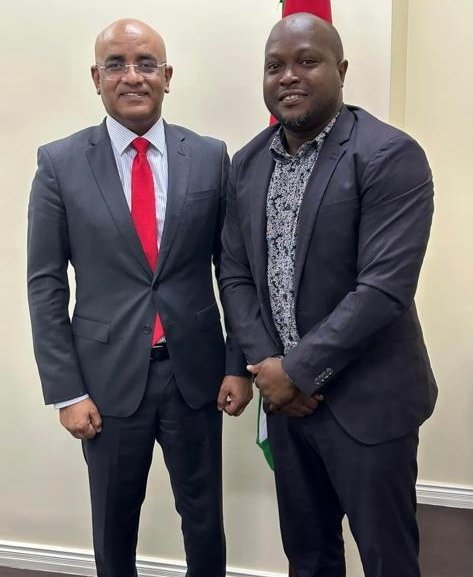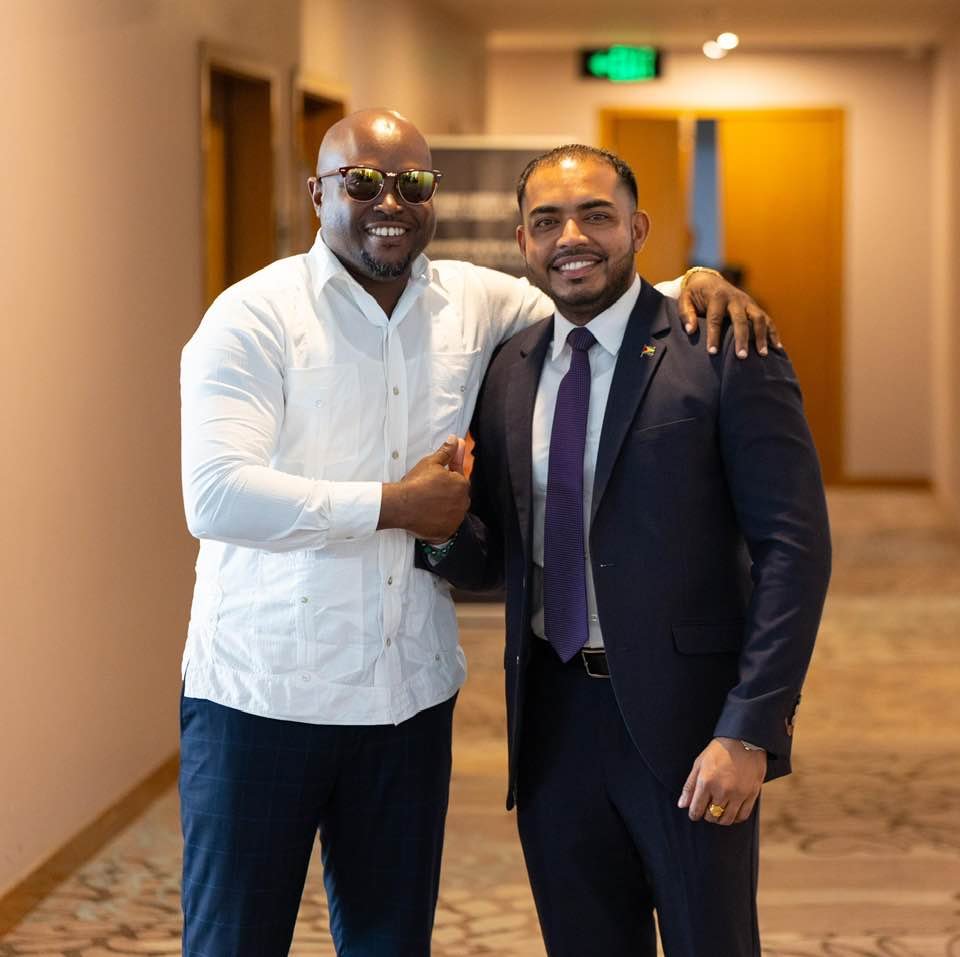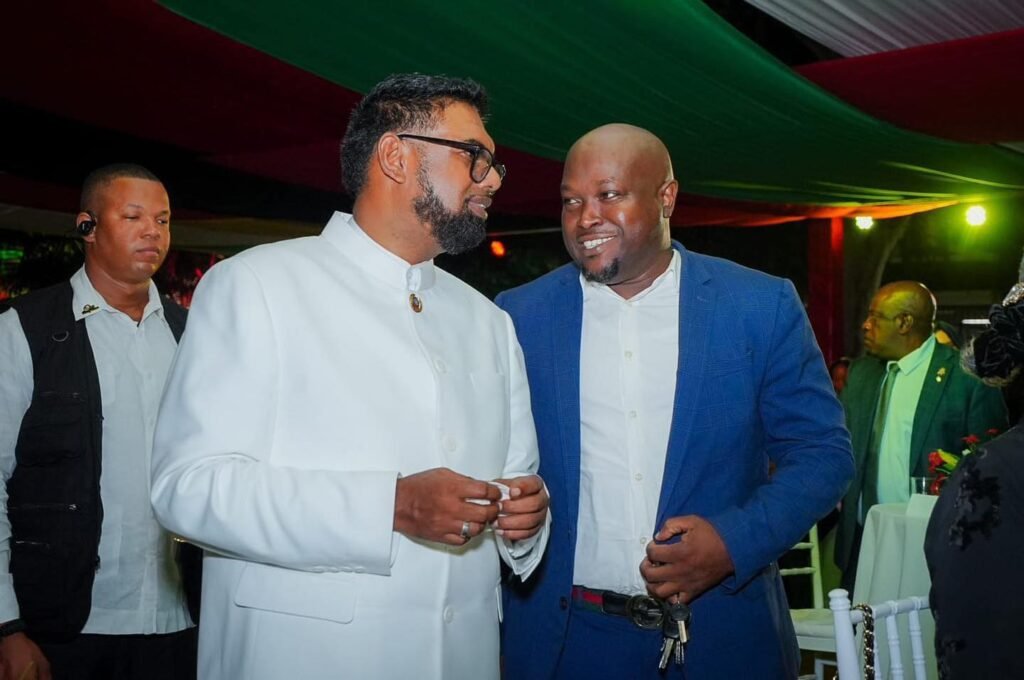The People’s National Congress Reform (PNCR) is now facing an internal crisis of unprecedented magnitude—a collapse driven not by external forces but by poor leadership, widespread resignations, and outright denial from its leader, Aubrey Norton. With the 2025 Regional and General Elections approaching, what’s happening within the PNCR is more than just a rough patch; it’s a slow-motion collapse. And no one has more clearly revealed this reality than the former executive member and outspoken critic James Bond.
Bond, a former Member of Parliament and long-standing figure in the PNCR, has raised the alarm. Appearing on the Starting Point podcast, Bond provided a sobering assessment: “The PNC is at its weakest. It’s at its weakest, and no amount of fluffing, no amount of posturing could change that.” This is not partisan exaggeration. It is a reality reflected by the departure of high-ranking party stalwarts who have cited dysfunction, marginalization, and a disturbing lack of vision as their reasons for leaving.

Despite this hemorrhaging, Aubrey Norton remains unmoved. Instead of acknowledging the gravity of these resignations, Norton has tried to downplay them, dismissing figures like Jermaine Figueira, Amanza Walton-Desir, Natasha Singh-Lewis, and others as “not heavyweights.” This isn’t just disrespectful; it’s delusional. These individuals weren’t party benchwarmers; they were strategic thinkers, community leaders, and public servants with proven records and grassroots ties.
Figueira, for example, served as Chairman of the Public Accounts Committee (PAC), was the shadow Minister of Culture, Youth, and Sport, and held the position of PNCR Chairman for Region 10—one of the party’s traditional strongholds. Norton’s claim that Figueira was “an occupier of a seat” reflects either political amnesia or desperate revisionism.
Bond correctly pointed out Norton’s disconnect from reality. “There is no way you could tell me that the likes of a Figueira, the likes of a Walton and Natasha Singh-Lewis… Dawn Hastings, Geeta Chandan, James Bond… there is no way you could tell anybody that they’re [insignificant]. If you do so, you’re being aloof. I don’t think you’re grounded in reality.”
This leadership vacuum, where ego outweighs empathy and denial shadows accountability, is precisely what fuels the PNCR’s decline. Norton’s hesitation to accept responsibility or even acknowledge internal problems is more than just political naivety. As Bond bluntly said, “It would be political suicide to admit that the departure of six or seven young people weakens your party.”

Over the past year, the PNCR has experienced a steady stream of high-profile departures, including Amanza Walton-Desir, Geeta Chandan-Edmond, Natasha Singh-Lewis, Daniel Seeram, Samuel Sandy, Dr. Richard Van-West Charles, Thandi McAllister, and others. These are not anonymous defectors; they are seasoned party members—some with deep ties to the PNCR—who left because they believe the party is resistant to change, blinded by insularity, and led by a man more concerned with public appearances than the party’s best interests.
All the resignation statements pointed in the same direction: the party has lost its way. Visionary leadership is lacking, meaningful debate is stifled, and dissent is often ignored rather than acknowledged. In Walton-Desir’s case, she said her input was constantly ignored, her voice “silenced.” Figueira noted that the party has embraced “ethnic antagonism” and abandoned the kind of inclusive leadership needed for a multi-ethnic nation like Guyana.
What makes this political unraveling even more revealing is that many of the PNCR’s former loyalists are not just resigning; they are supporting the ruling People’s Progressive Party/Civic (PPP/C). James Bond himself has openly endorsed President Dr. Irfaan Ali for a second term, a move that would have once been unthinkable for a PNCR loyalist.
The same applies to Dr. Van-West Charles, son-in-law of Forbes Burnham, the PNCR’s founding leader. His endorsement of the PPP/C could be one of the most symbolic acts of betraying Norton’s leadership, showing that the corruption within the party is so deep that even its historic figures are thinking about leaving.
This goes beyond political realignment; it involves integrity, leadership, and a growing recognition that the PNCR, under Norton, no longer functions as a viable alternative for national leadership. These endorsements indicate that even former rivals believe the PPP/C is a more capable and stable force for development and unity.
Instead of pausing to reflect, Norton takes the easy way out by questioning the competence of those who have left. He claimed Figueira was removed due to incompetence, Walton-Desir was sidelined for reasons he conveniently refuses to specify, and Singh-Lewis resigned because of personal loyalties rather than ideological differences.
This pattern of dismissing dissenting voices and shifting blame reveals a deeper issue in the PNCR’s culture: a fear of self-reflection. Norton prefers to craft a story that dismisses his critics as irrelevant, rather than confronting the truth—that his leadership is weak, his strategy is uninformed, and his party is losing support.
As the September 1 elections approach, the PNCR under Norton faces a crisis not only of membership but also of identity. The question is no longer whether they can win an election, but whether they can even remain a coherent political force. Bond’s warning should not be taken lightly. His criticism is based on his experience as a party member, having contributed to its activities, and his subsequent decision to leave due to differences in his views.
This internal collapse has weakened the PNCR politically. While Norton maintains appearances, the PPP/C is gaining support, bridging ethnic and regional divides, and positioning itself as the party of inclusive progress. The contrast is clear—and damaging for the opposition.
Aubrey Norton’s time as PNCR leader has been marked by arrogance, denial, and strategic errors. The wave of resignations, public endorsements of rival parties, and sharp criticism from respected former members, such as James Bond, all indicate one clear conclusion: Norton has failed.
And as the PNCR crumbles under the weight of his mismanagement, the only question remaining is how much longer its remaining members will follow a captain who is steering the ship straight into political oblivion. The party that once shaped Guyana’s history is now at risk of becoming a mere footnote—unless bold, visionary, and humble leadership emerges. Unfortunately for the PNCR, none of those qualities can be found in its current leader.
James Bond has publicly endorsed President Irfaan Ali for a second term as Guyana’s President.





